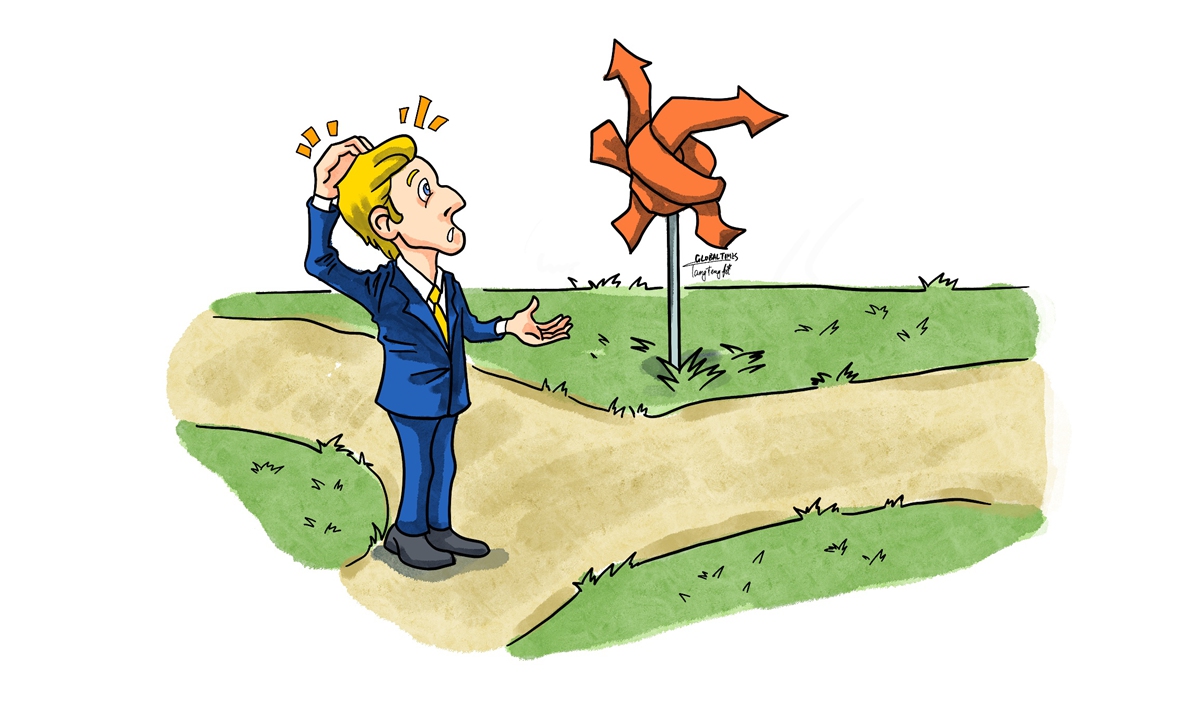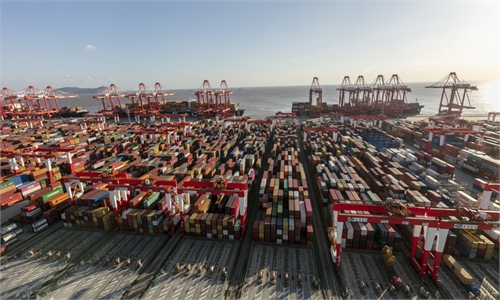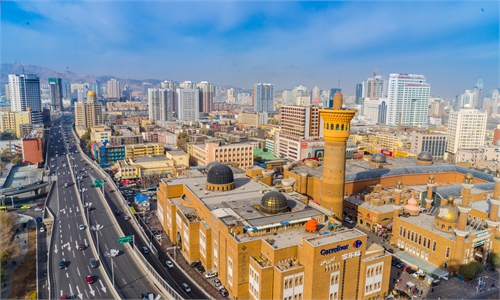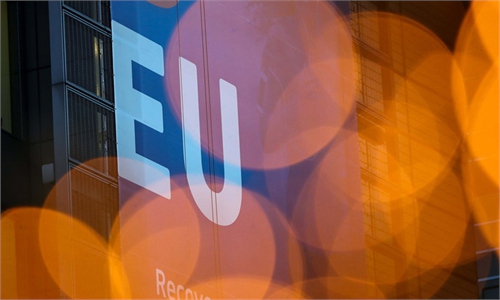
Illustration: Tang Tengfei/GT
European political elites who hold the power are likely to potentially complicate the world's big-power competition.Last Thursday, European Commission issued a trade policy review. This document might be the first one that systemically explains the strategic visions of current EU executive leadership for handling foreign economic relations. It also holds the potential to establish an overall framework for policy-making of the next five years in trade, technology, industry, investment, and strategic planning. Highlighting the top leadership's long-term anxieties and concerns, it discloses three inherent dichotomies.
First, it indicates why EU policymakers are "assertive in defending their interests" as they keep up hope to manage globalization by mending the multilateral architecture of global governance - even as it slows down.
In other words, they want both "fair" and "free" trade, and are formulating stronger protectionist measures to fend off imports that may threaten their own manufacturing sectors. At the same time, they are expressing detailed opinions on how to repair the WTO system. However, the "political trilemma" of the world economy, coined by economist Dani Rodrik, is already showing the intrinsic structural discord taking place within trade liberalization.
The parallel moves of assertive trade defense instruments and political efforts to revive the WTO may create disharmony in the EU's overall blueprint. This may ultimately harm their aim to fulfill objectives. Even within Europe's domestic politics, business interests that advocate free trade and grassroots voices that call for more protections are in conflict with each other. This adds to the complexity of thorny policy issues regarding these fields.
Second, this dynamic also manifests the EU's strategic tight-rope balancing act between China and the US. Clearly, the polarization between Beijing and Washington weights heavily on their decision making process. In fact, EU leaders view the rise of China as one of the major "trends" shaping "global uncertainty" and "tensions." This could be interpreted as one of the greatest challenges the EU faces. And they intend to deal with China through both "engagement" and "autonomous" protective policy instruments.
Furthermore, they hope that the "transatlantic cooperation" with the US will be reinitiated during Joe Biden's presidency. Actually, it will not be easy for the EU to hedge their bets within the China-US strategic rivalry, no matter how skillfully or ingeniously its diplomatic tactics are designed and executed. Europe's competitive moves with both China and US have seen greater intensity, especially as the old continent seeks greater share in third-party markets and more leading edges in technology. Despite this, Europe is frequently embarrassed of being forced to takes sides with China-US confrontation on issues ranging from Asia-Pacific maritime territorial disputes to issue of Huawei.
Inevitably, in future, the EU will be even more heavily pressed by and deeply entangled into the destabilizing contentions of these two giants.
Third, EU leaders may have to cautiously deal with possible internal divergences as the continent devises its own "open strategic autonomy." In this age of disruption and uncertainty, the EU is making endeavors to increase its capacity to be self-determined by its own actions. While the von der Leyen Commission is moving to centralize more resources for decision-making (particularly in fields related to industrial strategies), it is also faced with potential tensions between the EU large and member states for a proper division of power and jurisdictions that satisfies both sides.
Although it is undisputed that traditional trade policies and external trade negotiations are well within the EU's exclusive authority, this document recognizes that trade policy of this new age is widely implicated to strategic planning and geopolitics in a much broader picture.
Therefore, divergences between EU and its member states may unavoidably occur over how to divide or share decision-making power and authority on many specific issues. In this process, the overall effect may weaken its capacity to act as a whole. Indeed, it may exacerbate existing rich-poor and eastern-western divides within different member states themselves. This implies that the EU may or may not follow a straightforward path for developing its external economic relations.
Lastly, the von der Leyen Commission document claims that EU trade policy shall support its "geopolitical interests" and "ambitions." In this sense, it is reasonable to anticipate that the EU will attempt to manage its relations with big powers such as China and the US through trade or other economic means, and new tactics or strategies of economic statecraft from its political elites.
But this belies the innate contradictions and elusive ambivalence of these dichotomies - particularly as the ever-intensifying big-power strategic rivalry bears down. Simply said, it is likely that global geopolitics will turn out to be ever more unpredictable.
The author is professor and executive director of the Center for European Union Studies, Shanghai International Studies University. opinion@globaltimes.com.cn



